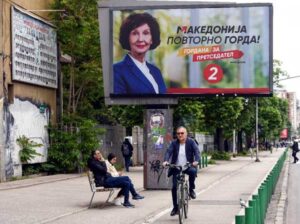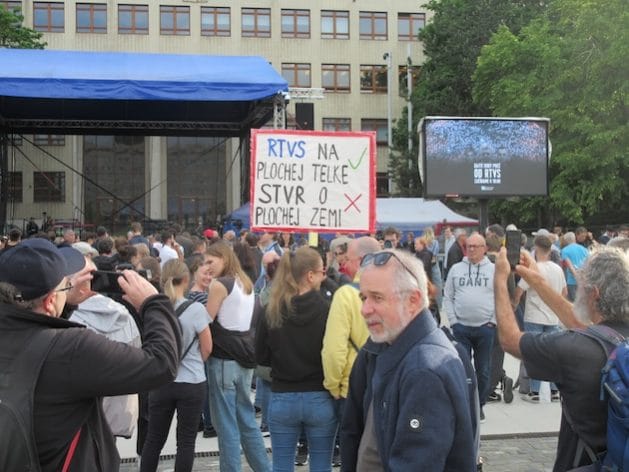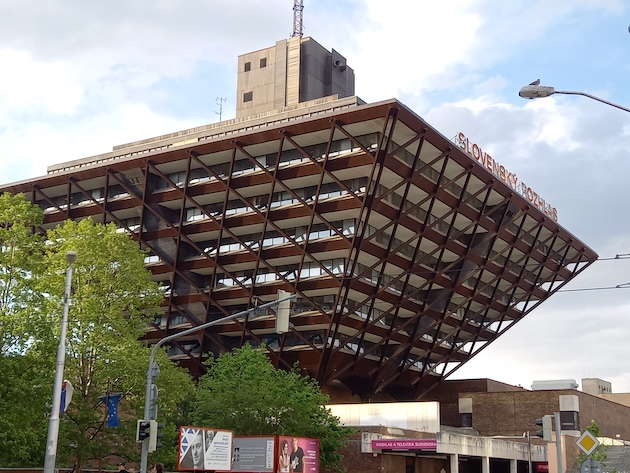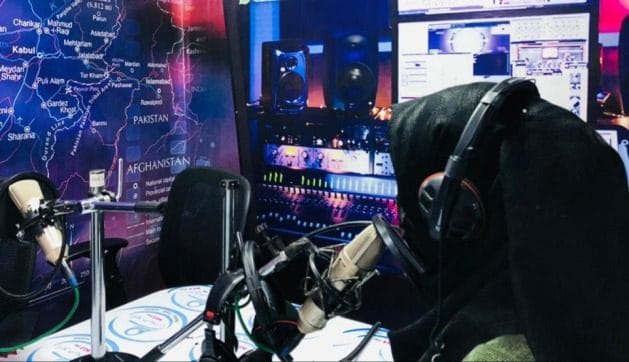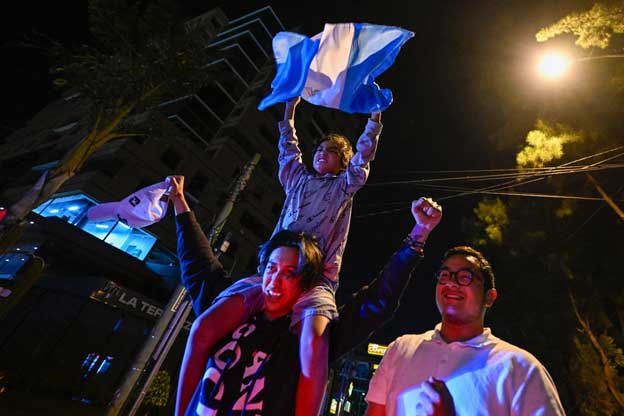
Editors’ Choice, Europe, Featured, Freedom of Expression, Headlines, Human Rights, Press Freedom, TerraViva United Nations

Camera crews wait outside the Slovak parliament building in Bratislava days after the attempted assassination of PM Robert Fico. Credit: Ed Holt/IPS
– Fears for the safety of journalists in Slovakia are growing in the wake of an assassination attempt on the country’s prime minister, which some politicians are blaming in part on local independent media.
Relations between some media and members of the governing coalition, led by Prime Minister Robert Fico’s Smer party, have become increasingly tense since the government came to power in October last year.
And immediately after Fico was shot and seriously injured on May 15, as he greeted members of the public after a government meeting, senior members of coalition parties linked the attack to critical coverage of Fico and accused outlets of spreading hate against him.
The 71-year-old man who shot the prime minister is thought to have had a political motive for his attack.
Since then, there have been calls from some other politicians and heads of media organizations to stop trying to apportion blame for the attack on any group so as to defuse tensions in society.
But senior figures from governing coalition parties have continued to attack the media for what they see as their role in fomenting anger towards the government and provoking the tragedy.
Journalists in Slovakia, and press freedom watchdogs, worry this is increasing the risk reporters could also become targets of a violent attack.
“Journalists are in no way responsible for this, and blaming them is only fueling the fires and increasing the likelihood of another violent incident,” Oliver Money-Kyrle, Head of European Advocacy and Programmes at the International Press Institute (IPI), told IPS.
For many years, Fico and his Smer party, who have been in power for much of the last 18 years in Slovakia, have publicly attacked individual media, and specific journalists in some cases, for their critical reporting of the various governments he has led.
When Jan Kuciak, a reporter investigating alleged corruption by people close to Fico’s government, and his fiancée, Martina Kusnirova, were murdered in 2018, critics said Fico’s rhetoric towards journalists had contributed to creating an atmosphere in society in which those behind the killings believed they could act with impunity.
Fico was forced to step down as PM not long after the murders, following massive public protests against his government.
But since returning to power, he and other members of the ruling coalition have repeatedly attacked journalists they see as critical of the government and his party has refused to communicate with certain newspapers and broadcasters.
The government has also pushed through legislation that media freedom organizations and members of the European Commission have warned could severely restrict independent media and press freedom.
Some journalists at major news outlets have been regularly receiving death threats and facing horrific online harassment for years, but others have said they have become increasingly worried for their safety in recent months, and that those concerns have been exacerbated now in the wake of Fico’s shooting.
Many believe that years of aggressive, derogatory rhetoric against them has made them a target for hate among some parts of a society with widespread distrust of media—a recent survey showed only 37 percent of Slovaks trust the media.
Since the assassination attempt, some newsrooms have taken extra security measures and the government has said it will also be providing extra protection for groups which could be facing an elevated safety risk, including media.
While this has been welcomed by media rights organizations, they have said politicians must take the lead in reducing tensions in society and lessening immediate safety risks for journalists.
“The way to de-escalate the situation is that political hate speech against media must stop,” Pavol Szalai, head of the EU/Balkans desk at RSF at Reporters Without Borders (RSF), told IPS.
In the immediate hours after the shooting, some ministers appeared to be pushing to calm the situation. At a press conference, Interior Minister Matus Sutaj Estok appealed “to the public, to journalists, and to all politicians to stop spreading hatred”.
Meanwhile, dozens of editors from print and broadcast media issued a joint statement publicly condemning the attack on the prime minister and calling for politicians and media to come together to calm tensions.
However, even days after the shooting, senior government figures continued to attack specific media or play down the seriousness of comments made by colleagues just after the shooting, including labelling media as “disgusting pigs”.
The Slovak government did not respond to questions on journalists’ safety from IPS.
But beyond putting journalists at increased risk, it is feared that the assassination attempt may also worsen what research has shown is significantly worsening media freedom in the country.
The government recently approved legislation – which is expected to be passed in parliament within weeks that will see the country’s public broadcaster, RTVS, completely overhauled and, critics say, effectively under control of the government.
Ominously, the leader of the governing coalition Slovak National Party (SNS), Andrej Danko, warned after Fico was shot that there would “be changes to the media” now.
And on May 19, speaking on the TA3 private news channel, he said he was planning to propose legislation that would set new regulations governing journalistic ethics, relations between journalists and politicians, and what politicians would be obliged to “put up with” from journalists.
Beata Balogova, Editor in Chief of the Sme daily newspaper, one of the news outlets in the country regularly criticized by government politicians, told international media that the government could now introduce “brutal measures against the media.”
Local journalists say any repressive measures would make an already difficult job even harder.
“I haven’t thought about how things could get more difficult for us to do our work in the future because it’s already very hard. It’s so difficult to gather news with political parties refusing to speak to us. [More restrictions] certainly wouldn’t make things easier,” Michaela Terenzani, an editor at Sme, told IPS.
She added, though, that it was difficult to predict what would happen in the coming days and weeks.
“At the moment, we are all just getting over the shock and trying to get on with our work as best we can. This is a major moment in Slovakia’s history and we will have to see what happens with relations between the media and politicians. Everyone is calling for calm, and I hope that is what we get,” she said.
IPS UN Bureau Report

